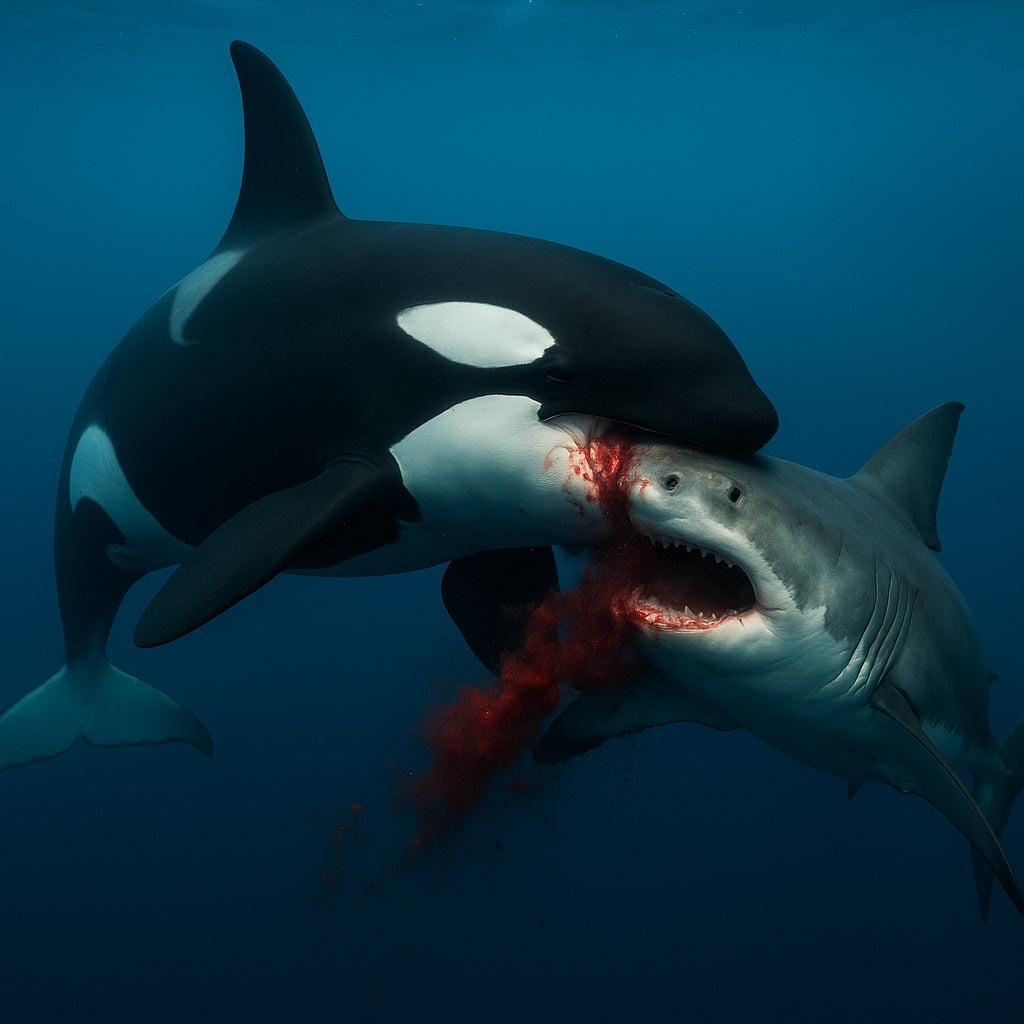
Killer Whales Hunting and Mutilating Great Whites for Their Testicles, Livers, and Stomachs
Share
Killer Whales Are Hunting And Mutilating Great White Sharks For Their Testicles, Livers, And Stomachs
Published on: Sussquatches SUSS News Blog
SUSSQUATCHES TRU MATRIX SCORE
| Category | Score (1–10) | Notes |
|---|---|---|
| Primary Evidence Quality | 8.5 | Autopsies, field observations, and peer-reviewed research. |
| Source Credibility | 9.5 | "All That's Interesting" summarizes credible data but isn’t an academic journal. |
| Source Ownership | 7.0 | Privately held media site, no conflicts disclosed. |
| Verification Feasibility | 8.5 | Claims are supported by independent, peer-reviewed studies. |
| Topic Status | 8.0 | Subject of active research and documented across multiple continents. |
| ✅ Total Score | 8.3 / 10 — Credible | |
Overview
Killer whales (Orcinus orca) have recently stunned researchers with their predation on one of the ocean’s top predators: the great white shark. Using advanced hunting strategies, some orca pods have repeatedly targeted sharks for their nutrient-rich livers, leaving behind corpses with surgical precision.
Notable Events
- South Africa (False Bay): Orcas named Port and Starboard are known for hunting great whites and removing only the liver. Source: Vice
- Australia (Victoria): A 4.7-meter great white found with a 50 cm bite and missing liver was linked to orcas Bent Tip and Ripple. Source: The Guardian
- Gulf of California: Reports of orcas hunting blacktip, bull, and hammerhead sharks show this may be a learned and expanding behavior. Source: LiveScience
- Orcas Eating Whale Sharks in Baja
How Orcas Kill Sharks
- Tonic Immobility: Flipping sharks upside down induces paralysis.
- Precision Targeting: Orcas bite near the liver and avoid unnecessary damage.
- Organ Preference: The liver is high in squalene and easy energy; other organs are often left untouched, except the testicles and stomachs in some cases.
Ecological Impact
- Shark Displacement: Great whites have abandoned traditional grounds like False Bay.
- Trophic Cascade: Mesopredator boom leads to prey imbalance (e.g., rays increasing in absence of sharks).
- Eco-Tourism Loss: South African shark diving has declined due to fewer shark sightings.
Supporting Literature
- Engelbrecht et al. (2023) – African Journal of Marine Science
- Marine Dynamics – White shark tracking and autopsy reports
- Jorgensen et al. (2023) – Monterey Bay Aquarium: shark tagging and orca mapping.
- Smithsonian Magazine
- Scientific American
Conclusion
This growing body of evidence confirms that orcas are now actively targeting some of the ocean’s most formidable predators with purpose and precision. As marine ecosystems adapt to these changes, scientists continue to study the ripple effects throughout global food webs.
Filed under: Ocean Intelligence, Apex Predators, SUSS News Verified Reports
